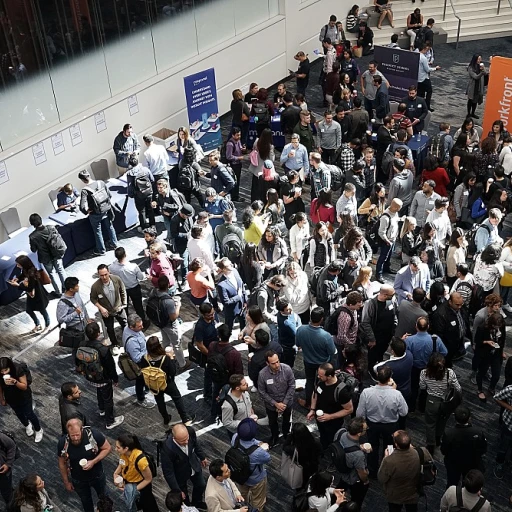
Changing expectations in corporate security roles
Shifting Demands in the Security Workforce
The world of corporate security is changing fast. Companies in the United States, especially in major hubs like New York City, are rethinking what they need from their security teams. It’s not just about having security guards on site anymore. Today, roles like security manager, safety director, and executive protection specialist are in higher demand. Employers are searching for candidates with a mix of experience in law enforcement, loss prevention, and advanced security operations.
As the risks facing businesses grow more complex, the expectations for security jobs shift too. Managers and directors are expected to lead full-time teams, oversee safety protocols, and adapt to new threats—both physical and digital. The rise of remote work and digital transformation means that security officers now need to be comfortable with technology and data protection, not just physical protection.
- Security guard and security officer roles are evolving, with more focus on customer service and crisis management.
- Corporate security jobs now often require knowledge of privacy policy and compliance regulations.
- Allied Universal and other major employers are seeking candidates who can join their teams with a broad view of risk management.
- Job postings in cities like New York highlight the need for both experience and adaptability in the security field.
For those looking to join the security workforce or move up to a manager or director position, understanding these changing expectations is key. Employers want team members who can handle everything from day-to-day protection to executive-level risk assessments. This shift is also driving the need for more robust background checks, which we’ll explore further in the next section.
As the industry evolves, liability and risk management are becoming central to the hiring process. For a deeper look at why general liability insurance matters for professionals in high-responsibility roles, check out this guide on general liability insurance for contractors. The principles apply broadly to anyone responsible for safety and protection in a corporate setting.
The growing importance of comprehensive background checks
Why thorough background checks are now standard in security hiring
The landscape for corporate security jobs has changed dramatically in recent years. Employers in cities like York and across the United States are no longer satisfied with basic checks. Today, comprehensive background screenings are a must for anyone seeking to join a security team, whether as a security guard, manager, or director. This shift is driven by the need to protect company assets, ensure workplace safety, and maintain trust with clients and the public.What drives the demand for deeper screenings?
Several factors have contributed to the growing importance of background checks in security roles:- Increased threats to corporate safety and data protection
- Stricter regulations for security operations and loss prevention
- Rising expectations from clients for executive protection and allied universal standards
- Greater public awareness of privacy policy and legal compliance
How background checks shape the future of security jobs
For those looking to join the field, understanding these expectations is crucial. Security guard and security officer roles, especially in major markets like York City, require candidates to demonstrate a clean record and relevant experience. Employers view background checks as a way to reduce risk and build a trustworthy team. This trend is seen across the board, from corporate security jobs to specialized positions in law enforcement and loss prevention. If you are considering a career in this sector, it’s important to recognize how these checks impact your job prospects. For a deeper look at how insurance and risk management intersect with background screening, check out this resource on why carpentry insurance matters for your business. It offers insights that are increasingly relevant for security managers and directors responsible for safety and protection. The bottom line: comprehensive background checks are now a standard part of the hiring process for security jobs. Being prepared and understanding what employers are looking for can help you stand out in a competitive field.Key elements employers look for in background screenings
What Employers Scrutinize in Background Screenings
For anyone aiming to join a corporate security team, understanding what employers look for in background screenings is crucial. The process is far more detailed than a simple criminal record check. Companies, especially in major hubs like York City or across the United States, are raising the bar for security jobs, whether you are applying as a security guard, manager, or director. Employers in the security sector, including those hiring for executive protection, loss prevention, or allied universal roles, typically focus on these elements:- Criminal History: A clean record is often a baseline requirement for security guards, security officers, and managers. Even minor infractions can be a red flag for jobs involving sensitive information or high-value assets.
- Employment Verification: Past job experience is checked to confirm your roles, responsibilities, and tenure. This is especially important for full time positions or those in security operations and corporate security management.
- Education and Certifications: Degrees, training, and licenses are verified, particularly for roles like safety director or security manager. This ensures candidates meet the professional standards needed for the job.
- Reference Checks: Employers often contact previous supervisors to get a sense of your reliability, professionalism, and ability to work as part of a security team.
- Digital Footprint: Increasingly, hiring managers review social media and online activity. What you post can influence perceptions of your judgment and suitability for jobs security roles.
- Legal Compliance: Companies must follow privacy policy guidelines and legal standards, especially when handling sensitive information during the screening process.
The impact of digital footprints on hiring decisions
Digital Footprints: A New Layer in Security Hiring
Today, digital footprints have become a critical part of the hiring process for corporate security roles. Employers in the security sector, whether looking for a security manager, security officer, or executive protection specialist, now routinely review online activity as part of comprehensive background checks. This shift reflects the evolving expectations for jobs security and the need for trustworthy individuals in roles that protect assets, people, and information.
What Employers Are Looking For Online
Companies—especially those with large security teams in places like york city or across the united states—are not just checking for criminal records. They also examine social media profiles, professional networks, and even public forum posts. The goal is to assess:
- Professionalism and judgment in online interactions
- Consistency with stated experience and qualifications for security jobs
- Potential red flags that could impact safety or loss prevention
- Alignment with company values and privacy policy
Why Digital Presence Matters for Security Roles
For positions like security guards, director of security operations, or safety director, a candidate’s digital presence can reveal much about their suitability. For example, posts that show a disregard for confidentiality or negative comments about previous employers may raise concerns for a manager hiring for sensitive corporate security jobs. On the other hand, a professional online profile can help candidates stand out when applying to full time or part time roles at firms like allied universal or other major employers.
Best Practices for Job Seekers
If you’re looking to join a security team or advance to a security manager or director role, it’s wise to review your digital footprint before applying. Consider these steps:
- Audit your social media for public posts that could be misinterpreted
- Update professional profiles to reflect your experience and skills
- Be mindful of privacy settings, especially if you’re seeking jobs security in high-profile organizations
Employers in york and beyond increasingly view digital presence as part of a full background check. Taking proactive steps can help you present the best version of yourself as you pursue opportunities in security guard, corporate security, or executive protection roles.
Privacy concerns and legal considerations
Balancing Privacy and Compliance in Security Hiring
The rise in demand for corporate security roles, from security guards to executive protection managers, has brought privacy concerns and legal considerations to the forefront. As companies in cities like York and across the United States ramp up their hiring for full time and part time security jobs, the need to handle sensitive candidate data responsibly is more important than ever. Employers and security teams must navigate a complex web of privacy laws and regulations. In the United States, the Fair Credit Reporting Act (FCRA) sets strict guidelines on how background checks are conducted for jobs in security operations, loss prevention, and allied universal roles. Candidates have the right to know when a background screening is being performed and must provide written consent. This is true whether the job is for a security officer, safety director, or corporate security manager.Key Legal Considerations for Employers
- Data Protection: Security managers and directors are responsible for safeguarding personal information collected during the hiring process. This includes criminal records, employment history, and digital footprints.
- Transparency: Candidates applying for security guard or security manager positions should be informed about what information will be reviewed and how it will be used. A clear privacy policy is essential.
- Equal Opportunity: Employers must ensure that background checks do not discriminate based on race, gender, or other protected characteristics. This is especially important in large cities like York City, where diversity is high.
- State and Local Laws: Some states and cities have additional requirements for background screenings in security jobs. For example, "ban the box" laws may restrict when employers can ask about criminal history.
Best Practices for Job Seekers
- Review the company’s privacy policy before applying for security jobs or joining a security team.
- Be prepared to discuss your experience and address any potential issues in your background that may arise during screening.
- Understand your rights regarding background checks, especially if you are applying for full time positions or executive protection roles.
Preparing for a background check in corporate security jobs
What Candidates Should Expect During Screening
For anyone looking to join a corporate security team—whether as a security guard, manager, or safety director—the background check process is a critical step in hiring. Employers in the United States, especially in cities like York, are raising the bar for security jobs. The process can feel daunting, but understanding what’s involved helps candidates prepare and present themselves confidently.Documents and Information You’ll Need
Before applying for full time or executive protection roles, gather these essentials:- Government-issued identification (driver’s license, passport)
- Proof of previous employment in security operations or law enforcement
- Relevant certifications (security officer, loss prevention, or allied universal training)
- References from past jobs security roles
- Any required state or city licenses (especially for york security guard positions)
How to Present Your Experience
Employers value clear, honest communication about your experience. Highlight your time in protection, safety, or corporate security. If you’ve worked as a security manager or director, be ready to discuss your approach to team leadership and safety protocols. For those with law enforcement backgrounds, emphasize transferable skills relevant to security officer or security guard jobs.Digital Footprints Matter
Hiring managers increasingly review online profiles. Make sure your public social media and professional accounts reflect your experience and professionalism. Avoid sharing sensitive information that could conflict with a company’s privacy policy or safety standards.Know Your Rights and Responsibilities
Familiarize yourself with privacy policies and legal considerations related to background checks. Companies must follow regulations to protect your data, but you also have a responsibility to provide accurate information. If you’re applying for jobs in york city or other regulated areas, check for any additional requirements for security guards or managers.Tips for a Smooth Process
- Double-check your application for accuracy
- Respond promptly to requests for additional documents
- Be transparent about any gaps or issues in your employment history
- Stay informed about the latest trends in corporate security hiring













